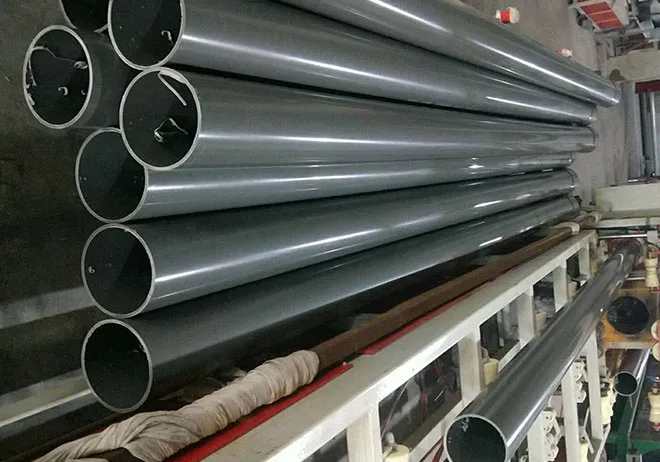Nov . 06, 2024 04:37 Back to list
Comparison of PVC and PPR Pipes in China for Plumbing Applications
PVC Pipe vs. PPR Pipe A Comprehensive Comparison
When it comes to plumbing and piping solutions, two materials that often emerge as popular choices are Polyvinyl Chloride (PVC) and Polypropylene Random Copolymer (PPR). Both PVC and PPR pipes have their unique characteristics, advantages, and applications. Understanding the differences between these two materials can help you make an informed decision for your plumbing needs.
Material Composition
PVC, or Polyvinyl Chloride, is a widely-used thermoplastic made from the polymerization of vinyl chloride. It is known for its rigidity, strength, and resistance to corrosion. PVC pipes are commonly used in water supply, drainage, and sewer systems due to their excellent mechanical properties.
PPR pipes, on the other hand, are made from a type of polypropylene polymer, which gives them a high degree of flexibility and thermal resistance. This makes PPR pipes particularly suitable for hot and cold water systems. PPR is known for its durability and the ability to handle high pressure and temperatures (up to 95°C).
Installation and Maintenance
Installation processes for PVC and PPR pipes differ significantly. PVC pipes are generally easy to handle and install. They are joined using solvent welding or gasket fittings, which hastens the installation process. However, because they are rigid, they may require more effort in corners and bends.
PPR pipes utilize a method called heat fusion, where the pipe ends are heated and fused together, creating a homogeneous joint that is as strong as the pipe itself. This process results in a more durable connection and reduces the potential for leaks. However, the installation of PPR pipes typically requires specialized tools and training, which can make the process more complex compared to PVC.
Regarding maintenance, both types of pipes require minimal upkeep
. However, PPR pipes often have a longer lifespan and are less prone to leakage, which can reduce maintenance intervals and repair costs over time.china pvc pipe vs ppr pipe

Cost Considerations
When considering cost, PVC pipes generally have a lower upfront price compared to PPR pipes. This makes PVC a popular choice for residential projects or where budget constraints are a factor. However, while the initial investment is lower, it's crucial to consider the long-term costs associated with maintenance, potential repairs, and durability.
PPR pipes tend to be more expensive, but they offer added benefits such as improved thermal insulation, resistance to scale formation, and longer service life. This can result in lower overall costs in the long run, especially in systems with high temperatures or extensive use.
Applications
PVC pipes are commonly used in drainage systems, irrigation, and other applications where high pressure and temperature are not primary concerns. They are valued for their outstanding resistance to chemicals and corrosion, making them suitable for various industrial applications.
PPR pipes are ideal for hot and cold water systems, heating installations, and even in systems transporting chemicals, thanks to their excellent resistance to heat and pressure. They are increasingly being adopted in both residential and commercial applications that require a reliable and long-lasting piping solution.
Conclusion
Choosing between PVC and PPR pipes ultimately depends on the specific requirements of your plumbing project. PVC pipes are a cost-effective choice for low-pressure applications, while PPR pipes provide superior performance in high-pressure and high-temperature scenarios. By considering factors such as installation method, maintenance, and long-term costs, you can make a well-informed decision that suits your needs.
-
High-Quality PVC Borehole Pipes Durable & Versatile Pipe Solutions
NewsJul.08,2025
-
High-Quality PVC Perforated Pipes for Efficient Drainage Leading Manufacturers & Factories
NewsJul.08,2025
-
High-Quality PVC Borehole Pipes Durable Pipe Solutions by Leading Manufacturer
NewsJul.08,2025
-
High-Quality PVC Borehole Pipes Reliable PVC Pipe Manufacturer Solutions
NewsJul.07,2025
-
High-Quality UPVC Drain Pipes Durable HDPE & Drain Pipe Solutions
NewsJul.07,2025
-
High-Quality Conduit Pipes & HDPE Conduit Fittings Manufacturer Reliable Factory Supply
NewsJul.06,2025

